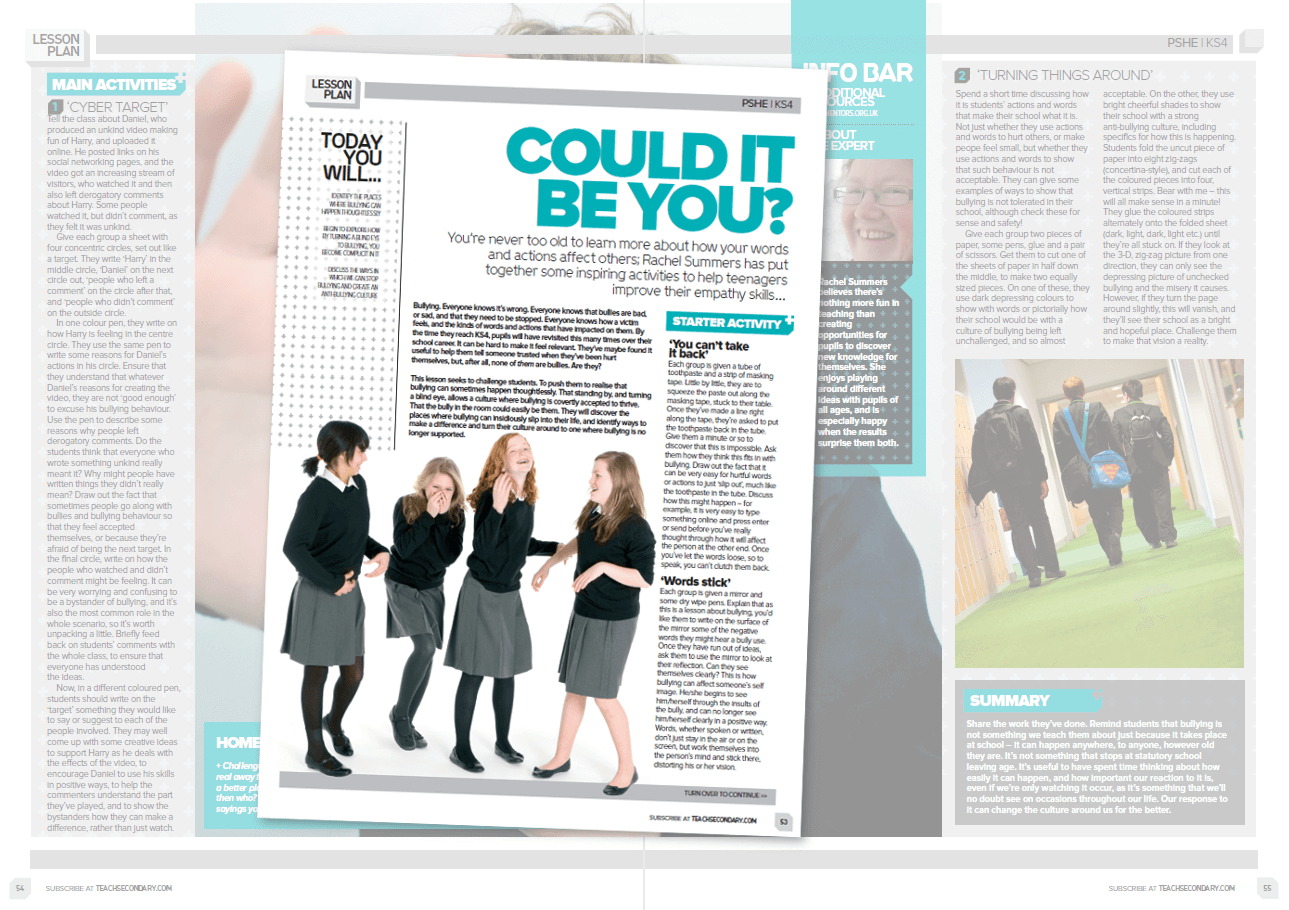You’re never too old to learn more about how your words and actions affect others. Rachel Summers has put together some inspiring activities in this anti-bullying lesson plan to help teenagers improve their empathy skills.
These include identifying the places where bullying can happen thoughtlessly, beginning to explore how by turning a blind eye to bullying, you become complicit in it, and discussing the ways in which we can stop bullying and create an anti-bullying culture.
This anti-bullying lesson plan is perfect for using on Empathy Day or during Anti Bullying Week.
Lesson objectives
- Identify the places where bullying can happen thoughtlessly
- Begin to explore how by turning a blind eye to bullying, you become complicit in it
- Discuss how we can stop bullying and create an anti-bullying culture
Starter activities
Back in the tube
Give each group a tube of toothpaste and a strip of masking tape. Ask them to, little by little, squeeze the paste out along the masking tape stuck to their table.
Once they’ve made a line right along the tape, ask them to put the toothpaste back in the tube. Give them a minute or so to discover that this is impossible.
Ask them how they think this fits in with bullying. Draw out the fact that it can be very easy for hurtful words or actions to just ‘slip out’, much like the toothpaste in the tube.
Discuss how this might happen – for example, it is very easy to type something online and press enter or send before you’ve really thought through how it will affect the person at the other end. Once you’ve let the words loose, so to speak, you can’t clutch them back.
Words stick
Give each group a mirror and some dry-wipe pens. Explain that as this is a lesson about bullying, you’d like them to write on the surface of the mirror some of the negative words they might hear a bully use.
Once they have run out of ideas, ask them to use the mirror to look at their reflection. Can they see themselves clearly? This is how bullying can affect someone’s self-image. He/she begins to see him/herself through the insults of the bully, and can no longer see him/herself clearly in a positive way.
Words, whether spoken or written, don’t just stay in the air or on the screen, but work themselves into the person’s mind and stick there, distorting his or her vision.
Rachel Summers believes there’s nothing more fun in teaching than creating opportunities for pupils to discover new knowledge for themselves.














